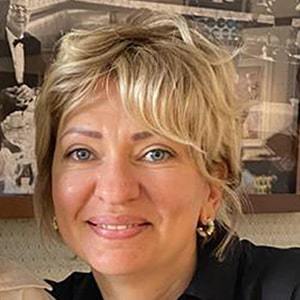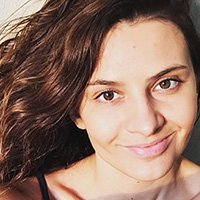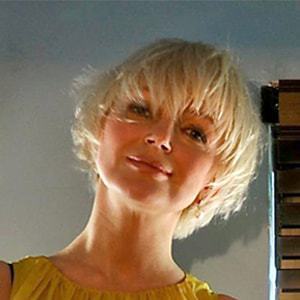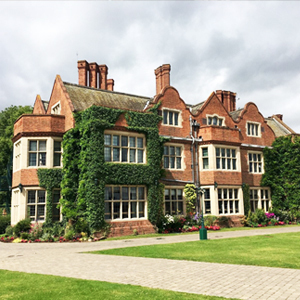Leave your phone number, we will call you back soon, answer all your questions and offer an individual program that is suitable for you and your child.
How to enroll in British university: instructions
Excellent instruction for admission to British universities. A clear story by our London university specialist Ksenia Starostina.
"Good afternoon! My name is Ksenia Starostina, I am a specialist at the Paradise company for admission to higher educational institutions. We are engaged in admission to British universities, European universities, for example, German, Dutch and French, as well as universities in the USA and Canada. Today we will talk specifically about British universities.
DEADLINE
In UK universities, the deadline for filing is, for example, September 2021 - January 15, 2021. There is also an earlier deadline of 15 October. It exists for those applying to Oxford or Cambridge Universities, as well as those applying for medical majors to become a veterinarian, dentist, etc. Acceptance of applications opens at the beginning of September, that is, the admission cycle for 2021 has not yet begun, but it is planned that it will start normally, since there is still a lot of time before this date.
It is important to understand here that in order to submit documents and have more chances, the application must be strong. And for the application to be strong, in addition to being a strong candidate, you need to present this application in the best possible light and prepare it well. Therefore, when we are asked how much in advance it is necessary to start preparing an application and to deal with admission, we advise: the sooner the better.
WHEN I SHOULD START PREPARING FOR ADMISSION TO THE UNIVERSITY?
At least a year, but much better if two years. This will give us enough time to properly select, prepare, strengthen the candidate's profile, so that he is ready for admission and can appear in the best possible light before the selection committee.
UNIVERSITY ENTRY PROCESS - UCAS
Let's say a few words about how the admission process is organized. Applications to British universities are submitted through a system called UCAS.
UCAS is an online system, it is a site that exists for students to apply to universities. Almost all UK universities are represented at UCAS. There are literally a few universities that you can apply to directly. These are usually private universities. UCAS allows you to apply to a maximum of five universities. You can serve in one, you can serve in two, but there should be a maximum of five. Naturally, it is better to take every chance.
It is important to understand that the same application will be sent to these five universities. Universities do not see where else you sent your application. They only get the one that is addressed to them. This means that we can only give in to adjacent areas and specialties, or it is desirable that they be the same. For example, you cannot apply for engineering, physics, business, or any other subject. You can, for example, apply to business, economics, business management or business economics. That is, you can write an essay, which is one of the key elements of the application, write in such a way that it will be suitable for these related disciplines. But it’s impossible to write an essay that fits completely different disciplines.
All universities will receive the same essay, and if it is too multidirectional, then the admissions committee will question how much a person wants to study this particular subject. Most likely the answer will be no.
STRUCTURE OF APPLICATION TO THE BRITISH UNIVERSITY
Let's say a few words about what the application consists of.
Firstly, this is the questionnaire itself, in which mistakes cannot be made. It contains information such as name, passport number, address, schools where they studied, grades, internship information, and only paid work is indicated there.
One of the key elements of the application is Personal Statement. A personal essay allows the candidate to tell more about themselves. It is the tool that allows you to stand out in comparison with other applicants. Also one of the elements is a recommendation. It is prepared by a school teacher. Again, it is very important that it is good, because it can affect one way or the other.
As a rule, most universities do not require an interview for admission to a bachelor's degree, unless it is Oxford or Cambridge, and if it is not a creative specialty. Sometimes the interview element is also present at Imperial College University, for example if you are applying for Computer Engineering. Still, more often than not, the interview is not part of the admission process.
Also, universities often conduct their own additional tests. For example, the aforementioned Imperial College conducts its critical thinking test. Oxford and Cambridge conduct their own tests of logic and critical thinking. They also use additional tests in mathematics in very many areas. All these tests need to be prepared additionally. That is, even if you study in a British school program, tests such as STEP 1 and STEP 2, which are needed for many strong universities, are different from the A-Level program. Therefore, good results require preparation in advance. Again, this takes time, so it's best to start early.
If the specialty is creative, there is a portfolio element. Typically, it can be design, fashion, or painting. The portfolio must be prepared according to specific laws and university requirements. It cannot be prepared in a month - it takes at least two years or at least a year. It's great if there are works from previous years, but recent works should also be there.
PERSONAL STATEMENT
I want to say a few words about Personal Statement - personal essay. Why does it play such a big role? The fact is that grades are a very important factor, but it is insufficient, because people with high grades apply to the best programs and the university needs to somehow choose among these people. Therefore, Personal Statement is precisely the tool that the university uses, including for making decisions.
It is very important to know that for British universities, first of all, academic activity is still important, that is, you need to talk about what the student has achieved at school, what academic interests he has. And in America, universities are much more interested in knowing what a student is as a person, so in their essays such topics and questions as “What have you achieved? What difficulties did you overcome? Tell us a situation where you showed leadership qualities? Tell us the situation where you were defeated and what did you get out of it? " etc.
They are usually quite small, but there are many. Here we have one essay of 4000 characters or 37 lines. This is roughly A4 page. The text should be very dense. It means that there should be no water, introductory phrases, empty general phrases, therefore Personal Statement is written and rewritten many times so that as a result it is a super-concentrated story, where each phrase “hammers a nail” in a good sense and helps to convey to the university why this particular candidate should be taken.
The first and main thing that Personal Statement should show is the applicant's passion for the subject. How to show this passion? You can't just write in the first line “from a young age I was interested in computers, played computer games”. Passion for an academic subject is shown through the books that the student has read, through the school communities and clubs in which he participated, additional extracurricular activities that he conducted, organized or simply took part in them, Olympiads in which he won, some trips that can be tied here (research, hiking, internships).
Also, we can talk not only about the direction we are interested in, but also about what is called "transferable skills", that is, about those skills that can be applied in completely different areas. It's absolutely important to say this.
A point to remember: Whatever is mentioned in the Personal Statement, it must be relevant to the program for which you are applying. You can't just say: "And I box well," I must say that you are a champion and won such and such competitions, and this taught you discipline, endurance, and this will help you to be an excellent medical student, because everyone knows that huge pressure.
That is, whatever you write should emphasize how it will help you to be a successful student in this program and why the university should choose you.
HOW TO INCREASE THE CHANCE OF ENTRY?
In the last two years of high school, it is very important, in addition to studying, to actively participate in various student communities, organize something yourself, attend lectures on the subject, read books on the subject in order to say a few clever phrases on the topic. You can also take an academic internship at the university. If a student is studying in Britain, then we advise, especially those who go into the scientific field, to undergo an internship at the university and work, for example, in a laboratory under the guidance of a PhD (candidate of science) who are writing a PhD work. It looks very good in a Personal Statement and is very helpful for the students themselves so they can understand if they are going in the right direction.
The Personal Statement should reflect all these merits. Accordingly, if the student did not do much, if he caught himself before the deadline to write the Personal Statement, then it may turn out to be somewhat short. If you take care of this in advance, then you can plan your extracurricular activities so that it strengthens the candidate's profile and generally helps with admission and preparation for admission.
IS IT POSSIBLE TO ENROLL IN A BRITISH UNIVERSITY IMMEDIATELY AFTER YOU LEAVE THE RUSSIAN SCHOOL?
We are often asked whether it is possible to enter a British university after graduating from a Russian school. Unfortunately, it won't work directly. The point is, there are two main options.
The first is to graduate from a Russian school and then complete the Foundation program. Foundation is like year zero for a university; a program, usually for international students, a bridge program that allows you to close this gap and enter the first year.
The second option is the British A-Level school program or the IB (International Baccalaureate) program. Typically, these programs last two years, and at the end of these two years, the student takes exams, which are entrance to the university.
If you go to the website of any university and look at the entrance requirements, which are called "Entry Requirements", then you will see the requirements for those who studied at the A-Level program, and for those who studied at the IB, because these qualifications in this context are equivalent. Back to Foundation. These programs are presented in completely different forms.
There is a Foundation, which is already built into the university program, and then, if you apply for such a Foundation, then, as a rule, through the UCAS system, that is, it will no longer be a three-year bachelor's degree, as is usual in Britain, but a four-year one, because there will be this zero year. There are Foundation, presented as separate programs, after which you need to give in somewhere else through external educational institutions.
There are separate programs, but at universities, where if you get a certain point, you can automatically be transferred to a certain bachelor's program. It is also important to know that in the case of the Foundation program, you also choose a direction. They are quite extensive, but nevertheless they can, for example, be called "Business and Management", "Arts and Humanities", "Mathematics and Engineering", "Natural Sciences". Therefore, it is important to already clearly understand why you are doing this and where you are going to go next.
PORTFOLIO FOR CREATIVE SPECIALTIES
An important point that not everyone knows is that if you choose a creative direction, for example, graphic design or fashion, then to apply to the Foundation you need a portfolio, at least a small one. It should be a set of completely different works. Admissions officers love breadth in this sense. Do not take works in one style, drawn in one way or any one project, but show that you can do pencil sketches, involve photographs, create collages, and so on.
That is, you need to show the breadth of skills and interests - the breadth of what you have tried. In general, talking about portfolio and the approach to art and creativity is a separate topic for conversation, because it is somewhat different from the classic one, to which many are accustomed. This is what Foundation is about. It is important to know that good school grades are required for admission to a good Foundation program, that is, we are talking about fours and fives, preferably without three. Although on some programs the requirements are simpler, and some triplets may be present. But, as a rule, the more competitive the program with a stronger university, the higher the grades are needed.
I will also make a reservation right away that if you have a European passport, then often you cannot enroll in the Foundation program. Let's say a candidate received a low score, for example, on the IB program, given that even if they have two Russian and Swiss citizenships, they cannot enroll in many Foundation programs, because they are intended only for students who do not have European passports.
There are a lot of such details related to passports, rules, grades, and, of course, everything cannot be told in a video message, but I think it is useful to mention this so that when choosing programs people understand that all these small things are absolutely necessary pay attention, they need to be considered because they can be critical. I also want to say that for admission to the Foundation, as a rule, you also need an essay. It is usually simpler than the essay written for a Personal Statement, unless you are submitting through UCAS.
WHAT CAN THE UNIVERSITIES REPLY?
What does it look like? You filled out an application, uploaded an essay, and the school provided a recommendation. An important point: until the school teacher uploads the recommendation to UCAS, you cannot pay and send the application. Then you are waiting for an answer. When do universities respond? Officially, they have the right not to respond until May. Now, for example, with this whole situation, for those who apply for September 2020, UCAS extended the response time by another 2 weeks, so now they can only respond at the end of May, so that they have more time to figure out what to do. But usually, of course, universities respond earlier.
Thus, if a student applied in November, then, probably, he will receive an answer already in December or January. But the bulk of universities, as a rule, respond in February-March. There are situations, especially if these are popular programs, that they do not respond until March, which, in principle, is also normal. In this sense, it is better, of course, to give in earlier also because this is the last year of study and then at the end you will need to concentrate on exams, and not worry about the application. It is very pleasant when an answer comes from the university, and you can know: "Okay, there is a conditional proposal for a place, you can continue to work on those grades that are indicated in it."
What are the possible outcomes? You applied to five universities. Universities send their responses: they can either refuse or offer a place. As a rule, this is a Conditional Offer, that is, a conditional offer of a place. This is an offer of a place on the condition that you receive certain grades. The conditions may look like this, for example: "We will take you if you get grades not lower than AAB, while in mathematics you must be A". I cite math as an example. This clarification may or may not exist.
WHAT GRADES ARE USED FOR APPLYING TO THE UNIVERSITY?
What are these grades? What assessments are we talking about? The fact is that students in Britain receive their grades if they study on the A-Level system in August, that is, literally 2 weeks before the start of their studies. Accordingly, they are submitted with grades, which are called "predicted grades" - expected grades. These grades are issued by the school and they are based on previous learning, which is why it is so important to study well already in the 12th grade, and not only think about the 13th grade exams.
What happens sometimes? The student thinks: "Well, there are still two whole years before the exams, there is still a lot of time, I will not try too hard now." But, firstly, the program, if we are talking about A-Level, is very complicated, and if you let everything go by chance, then it will be incredibly difficult later. This is not, say, the amount of material that you can actually learn the night before an exam or even a week.
And the second - already on the basis of how the student studied and how he showed himself in the first year of the sixth form. Based on this and on the basis of the mock exams he writes, the so-called "mock exams", the expected score is inserted for him. British schools give these marks fairly. If they overestimate the score, it is very insignificant, because if they start to overestimate very strongly and predict some unrealistically high grades, and then the students will receive grades much lower on the exams, the university will notice this, and trust in schools will be undermined.
Therefore, it is important for the reputation of schools to evaluate the student as realistically as possible. It is very important to study well from the beginning, because grades are a necessary condition, insufficient, but necessary. If, for example, the forecast is lower than the required minimum score, which is required for admission to a certain program, then there is a very high probability of a negative answer during the first screening of applications received.
YOUR ACTION AFTER RECEIVING AN UNIVERSITY RESPONSE
After the answers from the universities have come, you will have to choose two of them, and refuse to answer the rest. That is, we choose two universities out of five. In one of them, we answer: "Yes, this will be our" main choice "- the main choice." Accordingly, the second will be the "insurance option" - a spare choice. This choice will only work if the requirements for admission to this university are lower than our main choice.
When the results are ready, whether in mid-August, as usual for the A-Level, or in early July, as for those studying at IB, or if someone is studying in the Foundation program, they will receive the results even earlier, then If you have fulfilled the conditions of the offer of a place, for example, if the condition for acceptance was AAA grades and you received them, then you are automatically enrolled. You can choose a hostel, deal with a visa, and so on. If you received an AAB and this was a requirement of your reserve university, then you will automatically be admitted to your reserve university. If you have not met the requirements of either one or the other, then there are several possible options.
First option: You got A * AB instead of AAA. Here you will need to talk to the university. There is a small chance that they will meet halfway if the difference is really small, but this is not a fact. If you have not fulfilled the requirements of either the main option or the backup, then there is a procedure that begins mainly in July, but takes place in full force in the second half of August, after clearing takes place in a normal situation, that is, not as in this year, because this year it may be a little different, but by next year everything should be normalized. So clearing is when universities announce that they have places.
Why are there places at universities? Universities send out offers of places, but they are not sure that the student will choose them out of five of their options, and therefore, as a rule, even in good universities, but not in Oxford, Cambridge, St. Andrews or Imperial College, but in very good universities Russell Group has a place. It is important to know here that the requirements for admission to these universities will not become lower during clearing. There is no such thing that since there are places left, they will get students with even lower grades. No, the requirements remain the same as they were originally. But it is possible to contact directly with a specific university where there is a place, and if you meet the minimum requirements, then they can, in principle, very quickly enroll.
There is also a procedure called "adjustment". It exists for the opposite situation, if the student received grades much higher than the teacher predicted for him, and this gives him the opportunity to apply to stronger universities with higher requirements.
COVID-19: CANCELED EXAMS 2020
Back to enrollment in September 2020. All deadlines have already passed, and now the students have already received conditional offers of places, or they are waiting for more answers from universities, which, perhaps, will respond later this year due to the situation with the virus. This year, the A-Level and IB final exams were canceled, and now the Ministry of Education is developing procedures for how to give marks in a way that is fair, and that there is also an appeal procedure if someone disagrees with these marks. These things are currently in development.
As for those who study at universities and who have final exams, again they are a priority for universities. Universities decide how best to do this. It is highly likely that when it comes to exams, it will be through online platforms, for example, through Moodle. The same applies, in general, to other universities around the world. If this is a dissertation, then it is easier, because it is still possible to do it remotely, on distance learning. Everyone works to ensure that the students receive their well-deserved diplomas, so that this is as fair as possible, reflects the level that they have reached that they deserve.
I think that this is where I will end my story about British universities and applying to them. Although it is possible and necessary to talk, discuss and tell a lot about this. Thank you very much for your attention. Please ask us questions. Contact us. And I hope we'll see you live or in the next videos. All the best! Be healthy!"
If you would like to get advice, please contact us. The first consultation is free.
TESTIMONIALS
 Olga Nadelyaeva
Olga Nadelyaeva
Client of the "Paradise" company
Walton-on-Thames, UK
How to jump into the rapidly departing train of summer practices and necessary work experince? Now I can say - write to Ksenia in the "Paradise" company. Almost a month of research work in the team of the professor of biology can be said to have made my daughter's resume.
Often speaking about Personal Statement, which sometimes accounts for a good 40% of your success when entering universities, they forget to say that this is far from only about the correct structure and beauty of the syllable. The main thing is CONTENT. But in order to fill it with content, work needs to be started three years before that.
It's no secret that any “work experience” will not beautify your personal statement. Top British universities have little interest in how many elderly ladies you have brought across the road and what a wonderful experience working in the summer as a cashier in a store if you are applying to evolutionary biology.
In February of last year, feverishly wooling all kinds of sites and going over all the acquaintances in our minds, we in despair found that time wasted. Everything more or less decent was booked and dismantled already six months ago, or even earlier. I am very grateful to Natalia Strein, the founder of Paradise, for Ksenia Starostina, and Ksenia for her professionalism and talent to DO THE IMPOSSIBLE.
With the next offspring, prudently trying not to step on the same rake, work began in advance, which I advise everyone. Received a THOUGHTED PLAN, with all sorts of options, from the necessary books to participation in research. And this is despite the fact that the summer of 2020, due to COVID-19, is not the easiest one in terms of organizing anything.
Summary: I highly recommend Ksenia and Paradise. Five stars out of five. It is a must have! :)
 Tatiana Ruzankina
Tatiana Ruzankina
Moscow city
I would like to thank Ksenia for the consultation. She told everything in great detail and structurally regarding my question! I was very pleased, so in the fall I plan to start working with Paradise and Ksenia to prepare for entering the university.






About "Paradise"

Expert assistance in selecting the right schools for your child in the UK, Switzerland, which have been our main specialization since 1996.
We also help you enter schools where teaching is conducted in English: in the United Arab Emirates, Spain, Austria, Thailand, Canada, and France.
Full support in the admission procedure: preparation for an interview, visits to selected schools accompanied by a Paradise employee.
Assistance in applying to universities in the UK, Switzerland, Canada: writing motivation letters, creating a package of documents, creating the right case for applying for a visa (to avoid rejection).